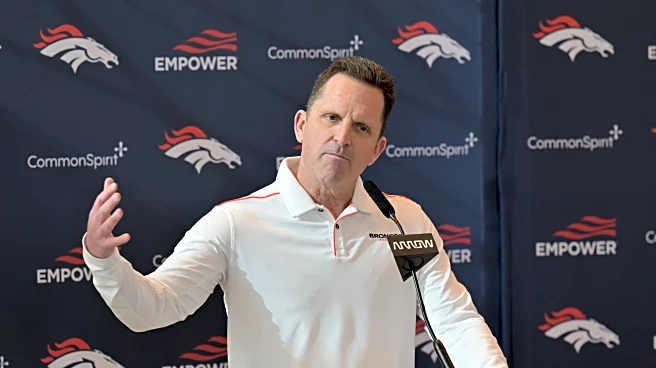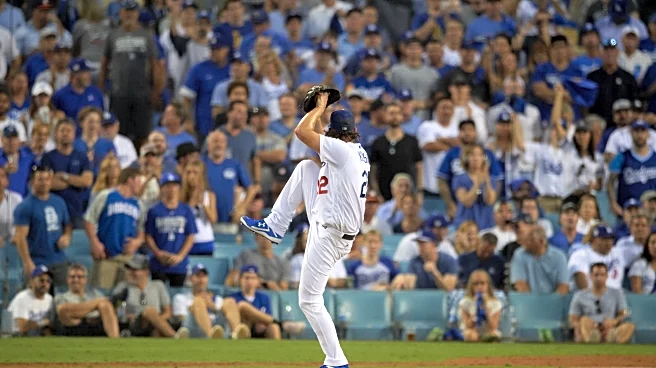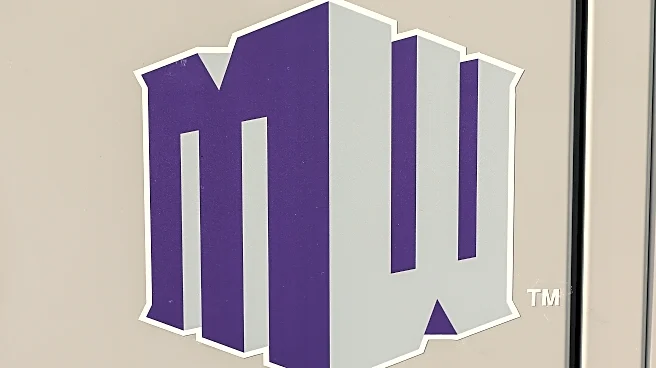What's Happening?
Cam Schlittler, a starting pitcher for the New York Yankees, expressed his discontent with certain Boston Red Sox fans who targeted his family on social media. Schlittler, who recently delivered a record-setting performance in the American League wild-card decider, noted that the social media posts were particularly distressing as they originated from his hometown of Walpole, Massachusetts. Despite the negative comments, Schlittler stated that they have only fueled his competitive spirit. Schlittler's performance helped the Yankees secure a 4-0 victory over the Red Sox, advancing them to face Toronto in the AL Division Series. Yankees manager Aaron Boone expressed confidence in Schlittler's ability to handle pressure and social media criticism.
Why It's Important?
The incident highlights the impact of social media on athletes and their families, raising concerns about the boundaries of fan behavior. Schlittler's experience underscores the potential for social media to become a platform for harassment, affecting not only the athletes but also their personal lives. This situation may prompt discussions within sports organizations about how to better support players facing online abuse. Additionally, Schlittler's ability to channel negativity into motivation could serve as an example for other athletes dealing with similar challenges.
What's Next?
Schlittler is expected to start in Game 4 of the AL Division Series against Toronto, barring a sweep by either team. The Yankees will continue to prepare for the series, with manager Aaron Boone confident in Schlittler's resilience. The team may also consider implementing measures to protect players from social media harassment, potentially influencing broader league policies.
Beyond the Headlines
The situation raises ethical questions about fan conduct and the responsibility of social media platforms to prevent harassment. It also highlights the cultural dynamics of sports fandom, where loyalty can sometimes lead to harmful behavior. Long-term, this incident could contribute to a shift in how athletes engage with social media, prioritizing mental health and personal boundaries.











